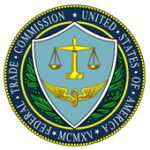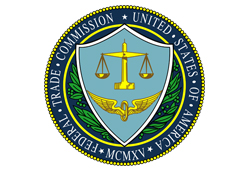 On January 27, 2016, the Federal Trade Commission (“FTC”) announced that it has filed a complaint against a for-profit college for allegedly violating the FTC Act by engaging in deceptive advertising. The suit was filed in the U.S. District Court for the Central District of California. The FTC has requested a permanent injunction to end the college’s deceptive advertising, restitution to the college’s students, and the costs of bringing the action.
On January 27, 2016, the Federal Trade Commission (“FTC”) announced that it has filed a complaint against a for-profit college for allegedly violating the FTC Act by engaging in deceptive advertising. The suit was filed in the U.S. District Court for the Central District of California. The FTC has requested a permanent injunction to end the college’s deceptive advertising, restitution to the college’s students, and the costs of bringing the action.
In its complaint, the FTC alleges that the college’s advertisement made deceptive representations about the benefits of obtaining a degree. The FTC focuses on two misrepresentations. First, the FTC claims that the college represented that students would obtain a “well-paying, career-oriented job in the student’s chosen field of study” after graduation. As evidence of this claim, the college advertised that 90% of its graduates seeking employment received jobs in their field of study within six months of graduation. This claim has been a focus of the college’s advertising since 2008. In 2013, the college started advertising that its graduates received on average 15% higher income than graduates of other colleges and universities.
The FTC asserts that both claims are false and unsubstantiated. For the first misrepresentation, the FTC claims the college counted graduates as working in their field of study even when they were not. For example, a student majoring in business administration with a specialization in health services management was recognized as working in their field of study even though the graduate got a job as a server at a restaurant. Students working in the same job as before graduation were also treated as if they received a job in their field of study. Finally, the college is alleged to have excluded unemployed students on the basis they were not actively seeking a job even though they repeatedly contacted the college’s career services department about employment opportunities. As for the second misrepresentation, the FTC claims it was based on a dubious report and that comparison of publicly available income data showed the college’s claim to be false.
In a related action, the U.S. Department of Education (“the Department”) announced that it has initiated a process to require the college to stop making representations concerning post graduation employment outcomes, and limit the college’s participation in Higher Education programs. The Department found that the college’s advertisement that since 1975 90% of graduates are employed in their field of study to be false. It recently sent the college notice of its intent to limit the college’s advertising. Pursuant to its authority in Title IV of the Higher Education Act, the Department may prohibit the college from receiving further Title IV funding.
These actions are part of an increased regulatory focus on for-profit colleges. The Department of Justice and several State Attorney Generals reached a $100 million dollar settlement with other for-profit colleges concerning allegations of the violation of federal and state False Claims Act as well as falsely certifying compliance with Title IV of the Higher Education Act. The Consumer Financial Protection Bureau also recently announced it received a default judgment against another for-profit college.

